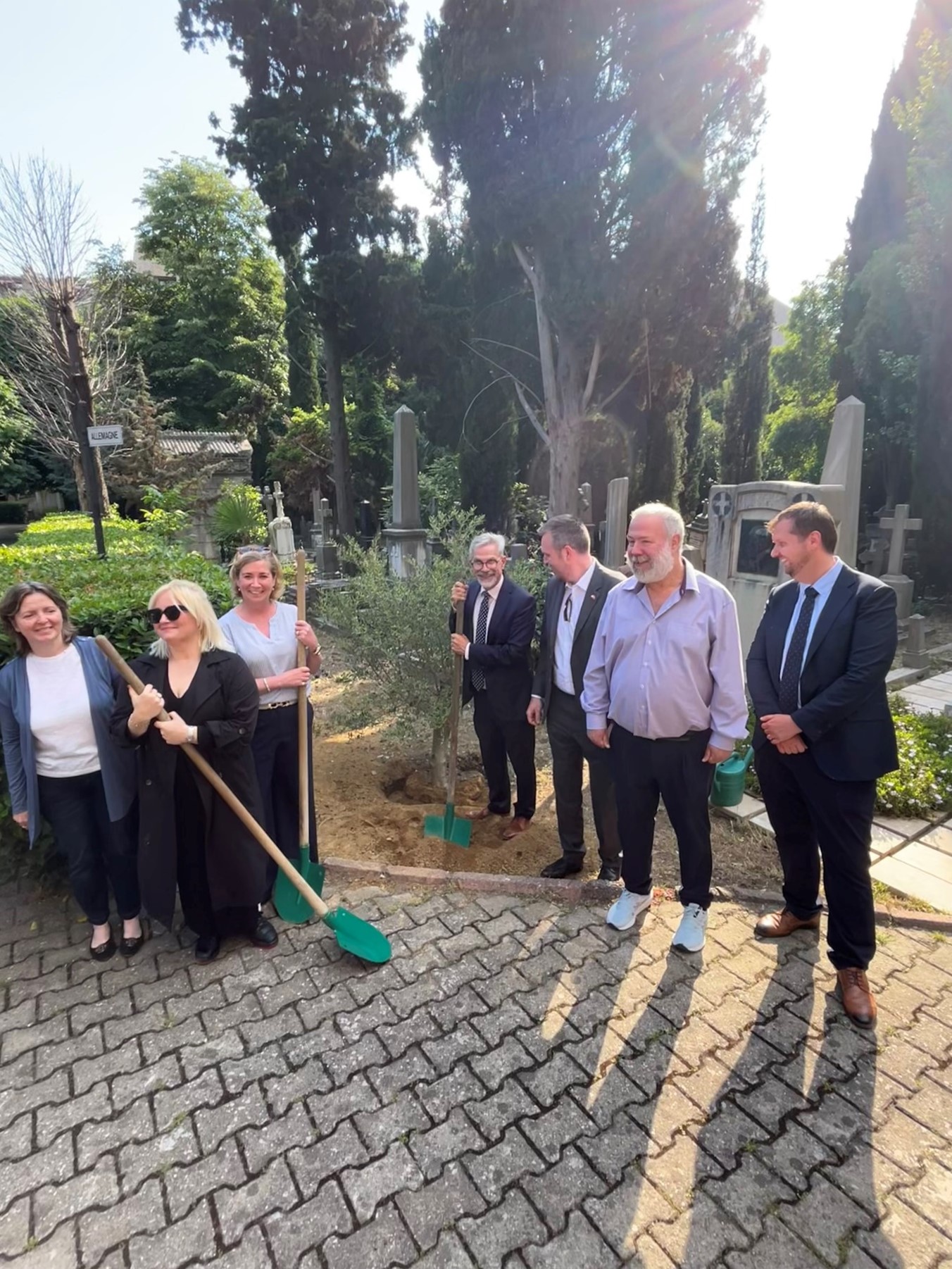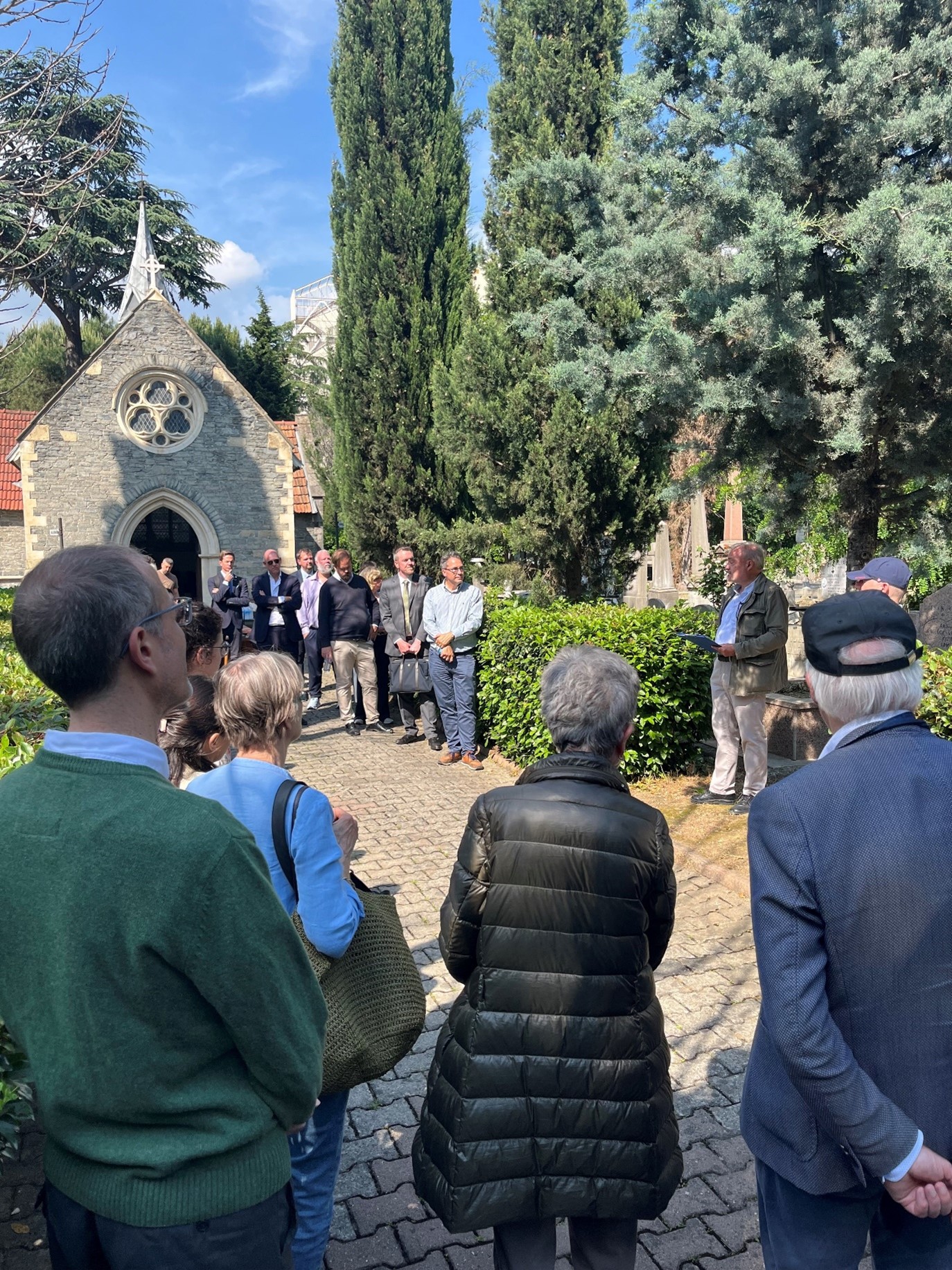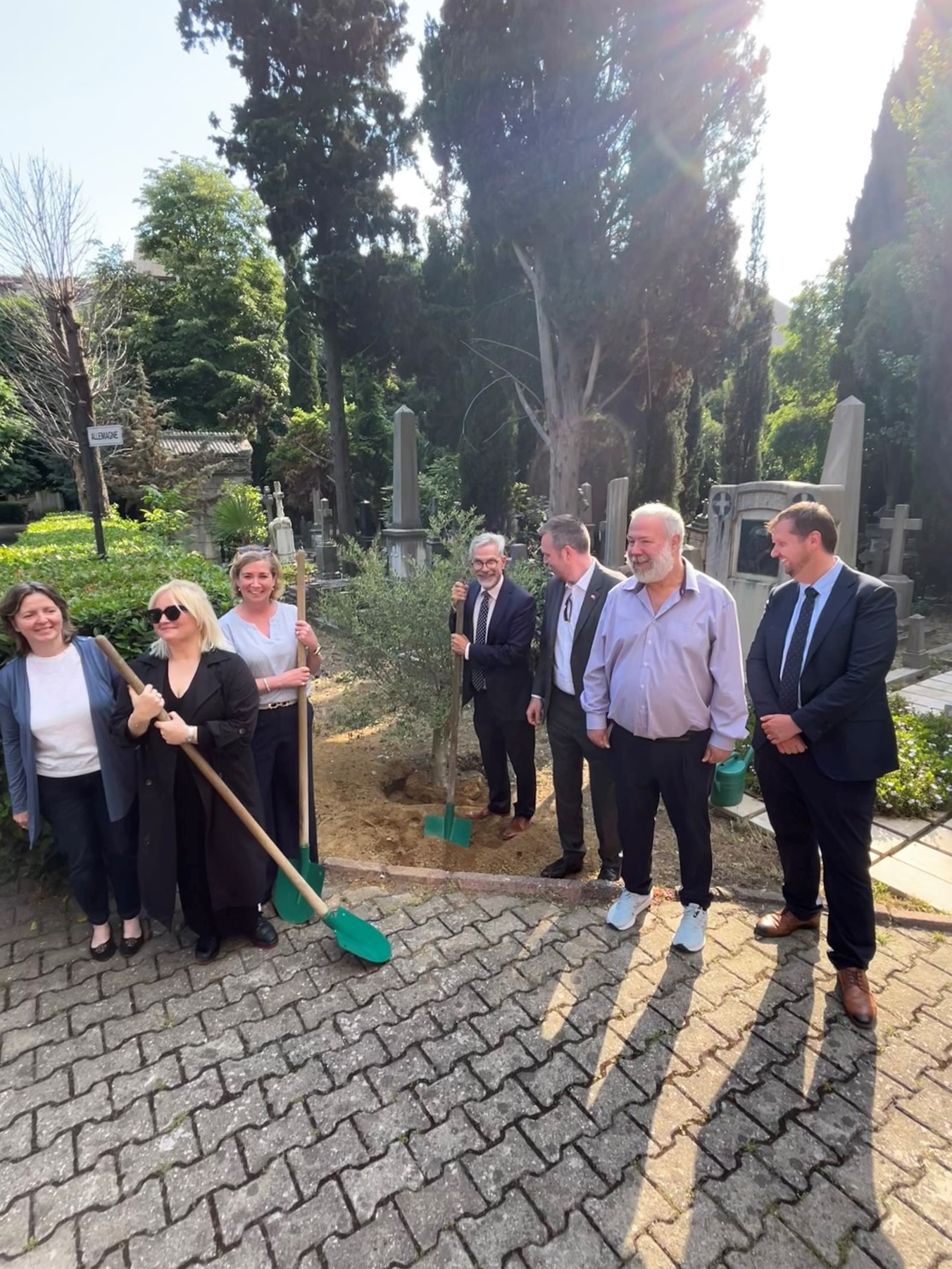Peace Tree Planting at Feriköy Protestant Cemetery - Türkiye
Peace Tree Planting at Feriköy Protestant Cemetery
On May 28, 2025, in celebration of the Week of Discovering European Cemeteries (WDEC), the Feriköy Protestant Cemetery honored its longstanding tradition of international cooperation by planting an olive tree in front of its chapel. Founded in 1859, the cemetery remains a lasting symbol of Constantinople's rich and cosmopolitan heritage.
Dedicated under the motto of the Association of Significant Cemeteries in Europe’s (ASCE) Peace Tree Project, “Live in peace to rest in peace”, the tree stands as a symbol of peace and a reminder of the importance of empathy and understanding in the face of division and aggression.
Association of Significant Cemeteries of Europe: Feriköy Protestant Cemetery (Istanbul, Turkey)
Exploring Shared Heritage
The cemetery represents a significant part of Dutch heritage in Istanbul, serving as the final resting place for merchants, clergy, and diplomats. Much of their history remains largely unexplored. Over the past months, NIT researcher Berken Vis has researched the lives of those buried in the Dutch section, and during the tour, he shared insights from his research. One of the persons whose history he delved into, is Gustave Adolphe Keun (1846–1916), a member of the prominent Keun family and a British deputy consul born in Buca, near Izmir. In addition to his diplomatic service, Keun was involved in regional commerce through the firm Keun & Hemmi. He died shortly after being arrested on suspicion of espionage, in Constantinople, 1916. Keun’s history a poignant example of the interwoven histories of diplomacy, international communities, and remembrance that this cemetery continues to represent.
Sebastiaan Kuipers, President of the Diplomatic Governing Board, spoke about the importance of shared stewardship in the ways we remember the past and care for the spaces where our histories converge.
Consul General of the Netherlands in Istanbul, Arjen Uijterlinde praised the Feriköy Initiative’s contributions, stating, “Their expertise is invaluable for appreciating the unique heritage of this cemetery and is of great help in the choices we make on a day-to-day basis with regard to the administration of the cemetery.”
He also reflected on Feriköy’s founding in 1859, recalling how Sultan Abdülmecid I gifted this land to the embassies of the leading Protestant powers of the time, including Great Britain, Prussia, the United States, the Netherlands, Sweden, and others, after the old burial grounds in Pera were repurposed for urban development. “Today, we are honored to share in the responsibility for the upkeep of this cemetery with our friends from Germany, the United Kingdom, the United States, Sweden, Hungary, and Switzerland,” he noted. “Each year, one of us serves as president of the board. In 2025, it is the Netherlands’ turn.”
During its presidency the Netherlands aims to preserve the cemetery while broadening public awareness of its unique story. The cemetery’s 2022 recognition by the Association of Significant Cemeteries in Europe provided a suitable occasion to do just that. Feriköy is now one of over 150 member cemeteries that collectively work to preserve Europe’s historic burial grounds.
“This year’s WDEC theme, Gardens of 80, commemorates 80 years since the end of World War II and ties into the UN’s Sustainable Development Goal 16: to promote just, peaceful, and inclusive societies,” he said. “Feriköy stands as an embodiment of that goal — a place of resilience and cooperation between seven countries and the City of Istanbul, across generations.”
As part of ASCE’s international Peace Tree Project, olive trees have been planted in places like Maribor, Halifax, and Budapest. “Here in Istanbul,” the Consul General explained, “we chose an olive tree not only for its symbolism of peace, but also because of its rootedness in Turkish horticulture and its contribution to biodiversity. As recent research by the British Institute at Ankara has shown, cemeteries such as this one serve as essential corridors for urban life and green connectivity.”
The olive tree was ceremonially planted in front of the chapel. The event concluded with refreshments served from one of Feriköy’s oldest neighborhood bakeries, featuring its beloved Süryani Çörekleri, or “Assyrian Buns.”
A Cemetry of Partnership
Founded in 1859, the Feriköy Protestant Cemetery is the principal resting place for Istanbul’s foreign Protestant, and more broadly, non-Catholic and non-Orthodox, communities. Approximately 5,000 individuals of diverse nationalities have been buried here.
Feriköy is administered by a rotating diplomatic board composed of the consulates-general of Germany, the United Kingdom, the Netherlands, Sweden, Hungary, Switzerland, and the United States. Since 2021, this board has been advised by the Feriköy Protestant Cemetery Initiative, whose member institutions, including ARIT, NIT, SRII, BIAA, the Hungarian Cultural Center, and the Orient-Institut Istanbul, contribute to research, conservation, and public programming.
Recognized by the Association of Significant Cemeteries in Europe, and with a dedicated In 2022, this Cemetery was recognized as a culturally significant cemetery by the Association of Significant Cemeteries in Europe.



